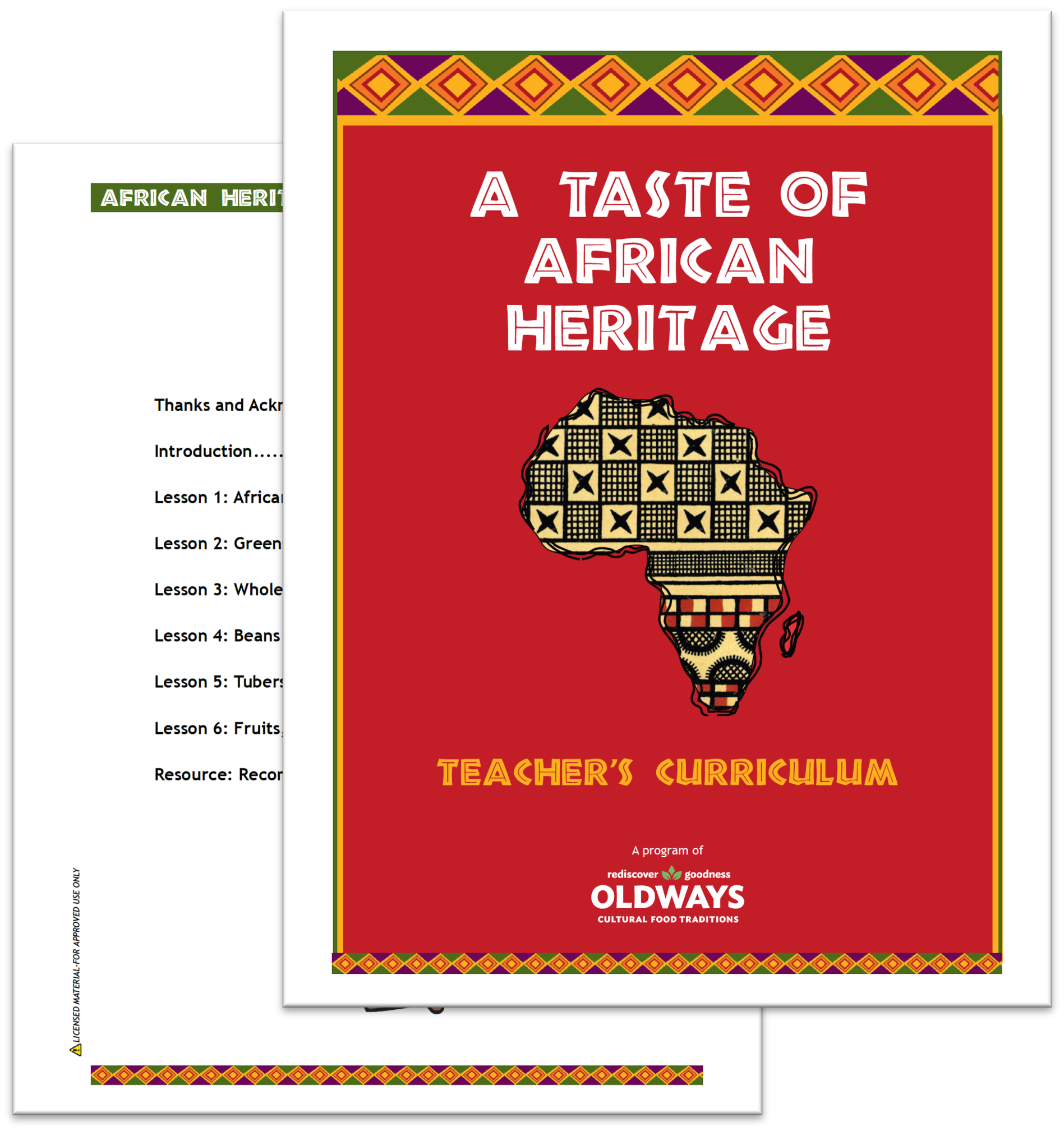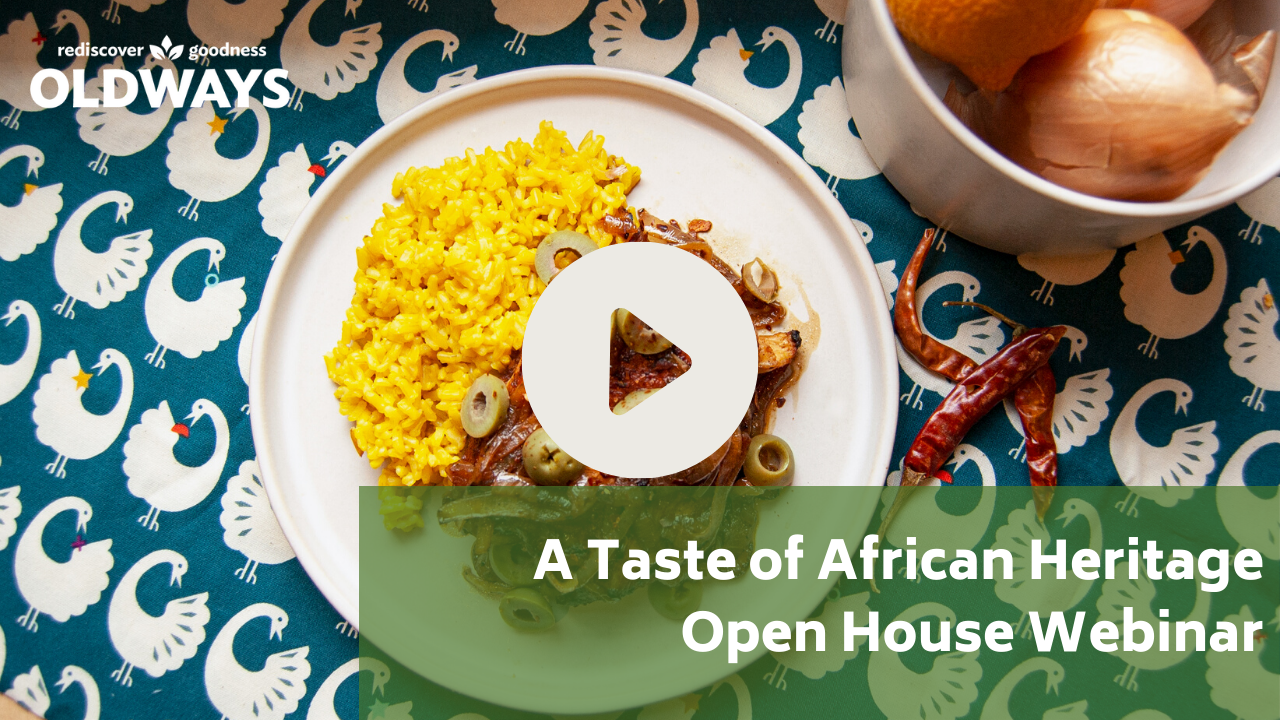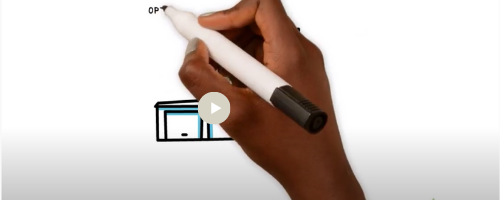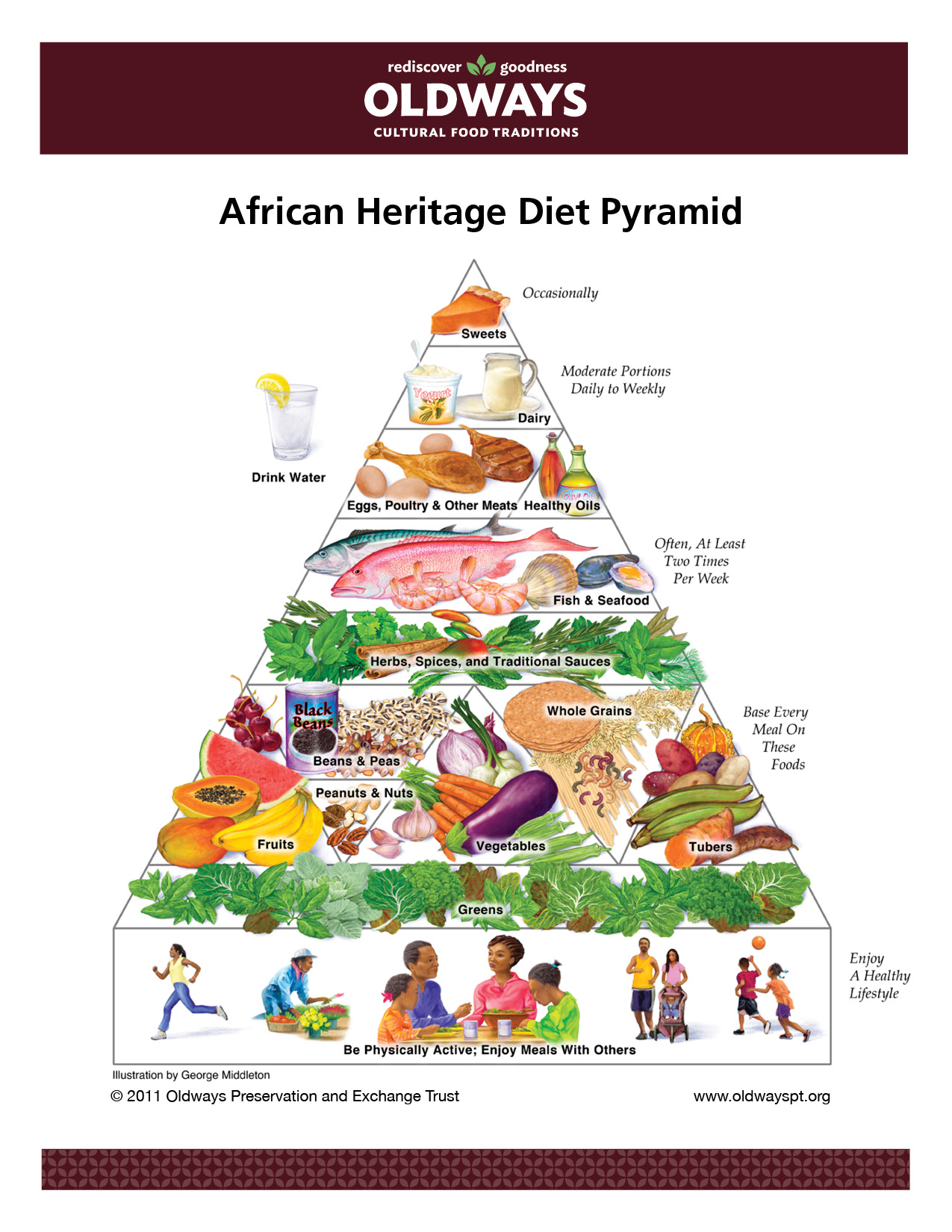A Taste of African Heritage is is a 6-week cooking and nutrition curriculum that celebrates the healthy, vibrant, plant-based food traditions from across the African Diaspora. Participants expand their knowledge of nutrition and learn simple cooking techniques for healthy living based on delicious African Heritage food traditions. A Taste of African Heritage is now an evidence-based internvention in the SNAP-Ed Toolkit!
“Thank you for your amazing curriculum - A Taste of African Heritage. Our team has so appreciated the thoughtful, strengths-based approach that celebrates culture and food.”
—Teacher in Minnesota
What Are A Taste of African Heritage Classes Like?
A Taste of African Heritage (ATOAH) is a six-lesson nutrition and cooking program. Most programs run over the course of six weeks, offering one class per week. Each lesson is 1 hour and 45 minutes long, and covers a specific food group from the African Heritage Diet Pyramid.
Lesson 1: Traditional Herbs and Spices
Lesson 2: Greens
Lesson 3: Whole Grains
Lesson 4: Beans and Rice
Lesson 5: Tubers and Stews
Lesson 6: Fruits and Vegetables
- Class schedule: 1 class per week, for 6 weeks
- Number of recipes per class: 2–3
- Class components: Each class is divided up into 1) an intro, 2) an historical and nutritional discussion, 3) a cooking lesson, and 4) a time to eat together and reflect.
- Tracking success: Using confidential lifestyle and physical health evaluations, instructors and students track their success to make sure that A Taste of African Heritage helps its participants make lasting changes for their health and wellbeing.
Learn more from our A Taste of African Heritage Open House video below:
Who Are The Classes For?
A Taste of African Heritage is designed for people of all ages and interests, including:
- Anyone who wants to add more flavor and nutrition to their life.
- Anyone interested in learning more about African heritage and culinary history.
- Friends wanting to get healthy or to start a cooking club together.
- Teens and preteens just learning how to cook.
- Seniors craving the foods of their childhoods and a taste of the old ways.
How Can I Attend A Class?
Check out our class site directory to locate a class near you. And if you can’t find one happening now, don’t despair! New classes are added all the time, so check back with us regularly. Or, become a teacher and bring the class to your community.
Beginning December 1, 2021 you can take the course online at home. Our e-course gives you the experience of a class series, online, on your timeline!
Who Can Teach the Classes?
A Taste of African Heritage is an excellent program to teach for anyone working in nutrition, education, food service, faith-based initiatives, community outreach work, or public health and wellness. You don’t have to be a chef or nutrition professional. Our on-demand (1-hour) teaching training webinar will give you the background information you need to know to confidently teach this course. Lesson plans have easily-followed, step-by-step guides for preparing and teaching.
If your organization does not have enough staff to teach the classes or you want to make use of experienced Oldways instructors, you may purchase our video collection, which includes recordings of each of the recipes and each of the lessons, featuring a diverse cast of experienced A Taste of African Heritage instructors. View a sneak peek here, and then learn more about how to access the videos online.
To learn more about the types of individuals who have taught classes, we invite you to learn more about our A Taste of African Heritage Ambassadors, long-time partners from across the country who have been instrumental in helping the program grow.
How Do I Start Teaching?
After you’ve viewed the (1-hour) teacher training webinar, fill out our “Become a Teacher Form” or contact classes@oldwayspt.org to get started. To access the curriculum, you can either: buy a license for 1 year of digital access, or buy hard copies of the curriculum books. More details on these two options below:
Licensing
Organizations interested in teaching A Taste of African Heritage can license the curriculum on an annual basis, which will allow the licensee to download a PDF version of the curriculum and related resources.
- Standard Single-Site License: For community health centers, SNAP-Ed providers, and other local organizations/small businesses. $300 per year per program
- Multi-Site License: For larger national organizations, or organizations with multiple sites.
Contact classes@oldwayspt.org to learn more.
Purchasing the Curriculum
Alternatively, organizations can purchase the printed student handbooks ($199.99 for 15) and teacher’s manual ($29.99) in our webstore with or without a license. Please note that photocopying the printed curriculum is a violation of the copyright. The minimum order of student handbooks is 15. Classes are also encouraged to purchase the African Heritage Pyramid poster ($19.99) to display in the class, and purchase the trifold brochures ($39.99 for 100).
Optional Video Add-Ons
If your organization is licensing the curriculum but does not have enough staff to teach the classes or if you want to make use of experienced Oldways instructors, you may purchase our video collection for a one-time fee of $300, which includes recordings of each of the recipes and each of the lessons, featuring a diverse cast of experienced A Taste of African Heritage instructors. View a sneak peek here, and then learn more online about how to access the videos.
How was A Taste of African Heritage developed?
Before we created the A Taste of African Heritage Program, we first assembled an advisory committee of nutrition scientists, culinary historians, and experts in African diasporic health and history to develop the African Heritage Diet Pyramid in 2011. We then used the Pyramid as the framework for the curriculum, and also had the curriculum reviewed by African American dietitians from our advisory committee. The curriculum was then piloted on a small scale so that we could refine the flow and the recipes, before being rolled out to a wider audience.
Since its inception in 2012, this grassroots program has been included in the National SNAP-Ed library and has been taught more than 400 times in communities across the nation. We continually collect feedback on the lessons and recipes so that we can continue to optimize the program.
Is A Taste of African Heritage evidence-based?
Yes. SNAP-Ed recognizes three levels of evidence-based approaches: research-tested, practice-tested, and emerging. A Taste of African Heritage is a research-tested approach. A peer-reviewed study published in the Journal of Nutrition Education and Behavior in 2022 shows that participants of ATOAH significantly increased weekly intakes of MyPlate food groups like fruits, vegetables and greens, increased weekly exercise frequency, and also had significant improvements in weight, waist circumference, and blood pressure. The study also identified an improvement in awareness and knowledge of healthy eating from program participants.
Oldways’ African Heritage Diet Pyramid was also referenced in a 2019 article in Nutrients, which found that providing culturally-appropriate interventions, providing flavorful, low-cost plant-based options, and focusing on healthy foods that are already regularly enjoyed in Black cuisine (such as leafy greens, tubers, and okra) are all strategies to promote good nutrition in Black communities.
Research shows that making culturally-sensitive modifications to diet programs can lead to improvements in blood pressure, weight, and other health parameters. Though not specific to A Taste of African Heritage, one of the most interesting studies documenting the health benefits of African Heritage diets was a controlled trial published in Nature Communications in 2015. You can find more research related to African Heritage diets here.
Can I Teach a Class Online?
Yes! Please visit our Virtual Teaching Tips page for more information.




